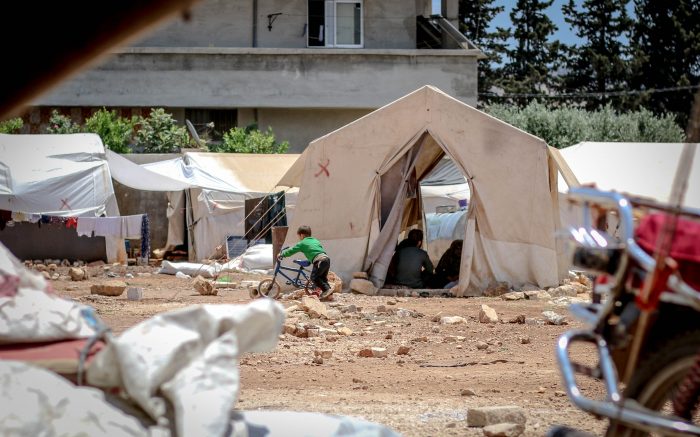Why Aid Workers Need To Know The Local Language
Since UNHRC’s opened a field office in southern Syria, more volunteers have been deployed to deliver relief items. We look at what skills and knowledge aid workers need to build relationships with displaced communities and stay safe…
When the United Nations Human Rights Council (UNHRC) stepped up its efforts to help the 550,000 displaced people in Syria with a new field office and warehouse in the Southern city of Sweida, aid workers were needed more than ever to deliver basic relief items and support.

Foto de Ahmed akacha en Pexels
Charities delivering aid say it is vital that workers know the local dialect of a country. An inability to speak the language can create a barrier between workers and locals and also put volunteers at risk.
Knowing The Dialect
In communities torn apart by conflict and civil unrest, potentially dangerous situations can arise, so volunteers need to be able to understand what is happening around them. Language skills are crucial to that understanding: knowing the language can get you out of harm’s way and enable you to help the locals. This means being fluent in the country’s language rather than just knowing a few words.
For this reason, the International Committee of the Red Cross has a strong focus on languages when recruiting aid workers, and humanitarian degree programs highlight the need for workers to speak at least two languages.
Understanding the Dire Need for Language Services in Africa
A 2012 report on ‘translation needs in Africa’ by the Common Sense Advisory found that experienced translators can address information disparities in the country, particularly as they concern matters of health and safety. The survey reported that:
- 94.87% of respondents said greater access to translated information would help Africans in times of emergency or natural disasters.
- 88.78% of respondents said greater access to translated information would help prevent international, civil, ethnic, or communal conflict in Africa.
- 63.07% of translators for African languages said that greater access to translated information could have prevented the death of someone in their family or circle of friends.
Although multilingualism is common among Africans, “Africa’s share of the language services market is disproportionate even when considering its share of global GDP, which is also considerably out of line with its share of the world’s population,” the report says.
The majority of survey respondents also reported that greater access to translated information would help people understand their legal rights and prevent conflict.
Beyond Language: Cultural Understanding
Along with speaking the language to avoid danger and connect with communities, aid workers need to be familiar with the country before they go, this means learning about its history, politics, and different cultures.
Save the Children stresses the importance of understanding the country’s various social and cultural dynamics. It says that being unfamiliar with cultural dynamics may expose workers to unnecessary dangers, while an understanding of cultural norms and the different roles and restrictions for men and women will ensure that workers behave appropriately, and it may lead to greater respect from the local community.
Dressing like locals can also help aid workers blend in and make them more approachable.
For this reason, employers of aid workers prefer to hire local people whenever possible, who will also be more aware of varying local dialects across areas.
Aid Workers In Haiti
According to the survey ‘Missed Opportunities‘, if aid workers speak the language and come from the same culture they are more likely to know what people need and spot things that might otherwise be overlooked.
One example of this, cited by the survey’s authors, comes from Haiti where a local Non-Governmental Organisation (NGO) partner set up communal kitchens because they knew how little space the displaced people had for cooking, and how dangerous their many small cooking fires could be in a tented camp under plastic sheeting.
Sharing Religion In Addition To Language
Sharing religious beliefs with the displaced can also help aid workers connect with the people they are helping. This is a focus of faith-based aid agencies such as Christian Aid and the Catholic Agency for Overseas Development (CAFOD).
Conclusions
While there is no set career path for an aid worker and no guarantee that in the field they will have the chance to build relationships with displaced communities, NGOs and charities stress how important it is to speak the language, even as a starting point.
Ensuring their workers can speak the local languages and dialects mean that those on the ground will be able to reassure people who are often scared and explain to locals that they are there to help, not hinder.
More importantly, if those needing aid are in crisis and/or experiencing a medical emergency, aid workers are able to help more efficiently and find the root of the problem without the need for a translator. For aid workers, learning languages can save lives.
Contact us to start learning a language today.
